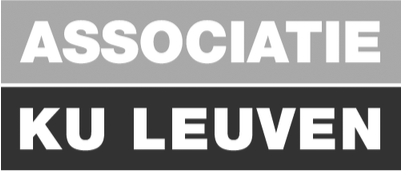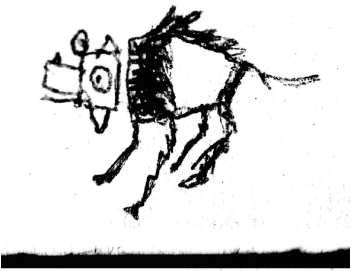The 6th edition of the International Interior Literary Festival – FLII Words of Fire – in honor of the victims of forest fires, brought together dozens of writers from Portugal and abroad for four intense days of performances in eleven municipalities of Central Portugal, with the mandate to address important issues of the environmental emergency.
“Foresta Rossa”, a two-poets intermedia show, was produced by Sara Maino and Marina Kazakova specifically for the festival location affected by the forest fires. The performance is based on a pre-structured dialogue and includes improvisational parts as a response of the poets to the context they perform in. The site-specific element of the performance is tied to location visits, as means to collect memories of victims and analyse the artefacts of forests’ fires.

Sara Maino & Marina Kazakova at the International Interior Literary Festival – FLII Words of Fire 2023
The duo was among the first grantees of ‘Culture Moves Europe’, the largest EU mobility scheme that provides new opportunities for artists and cultural professionals. Implemented by the Goethe-Institut on behalf of the European Commission, with a budget of €21 million, Culture Moves Europe will offer an opportunity to around 7,000 individual artists and cultural professionals to go abroad for professional development or international collaborations within the period 2022-2025.
“We were lucky to perform at this innovative intermunicipal festival, which takes place in eleven counties in the region affected by the fires”, explains Maino. “Writers came to the most unusual places, such as factories, forests, churches, even a prison. Getting this funding means that we were able to join a community of writers who gave voice to the stories of victims of forest fires: people, flora, and fauna affected by these disasters. Thanks to this mobility, we could share a live poetry experience and bring an outsiders’ perspective on the environmental issues that affect the Portuguese lands”, says Maino.

Sara Maino & Marina Kazakova at the International Interior Literary Festival – FLII Words of Fire 2023
Many of us know that poetry is important, however poetry still remains the non-profit of literature. Poetry does not pay. It does not pay poets enough to live on – which is why they support themselves in other ways – and it does not pay publishers enough to make it worth their while to publish it.
“It is essential that poetry is funded, that we, as a society, find ways to establish the system of support and the accompanied reckoning around the ways poetry exists in Europe”, says Kazakova. “We can’t say that we value poetry without also valuing the poet. Poetry is a practical way of affirming the principles of humanism. The existence of poetry and culture, in general, allows us to remain human. Only the preservation and successive development of culture guarantees a civilized form of peaceful co-existence for a large number of people in a multilingual, multicultural land as Europe. And that’s why permanent granting schemes like Culture Moves Europe are of great value”.

International Interior Literary Festival – FLII Words of Fire 2023
The integration of artifacts from forest fires into the live poetry performance is a poignant aspect of the Foresta Rossa show. The act of collecting memories from trees, victims of forest fires, is symbolic, as it highlights the importance of acknowledging the sentience and interconnectedness of all living things. It serves as a reminder that we are all connected to and affected by the environment, and that we must work together to protect it.
In this age of perfectly curated social media feeds, Sara’s thoughts on the role of the forests in her life are especially resonant: “From early childhood, I had a retreat from the normal world, a hidden germ in the Dolomites, the forests of Monte Velo, a retreat into the “wild” of your socially hidden self. These regular returns to the green chaos, to the deep forest of the unconscious is essential to my mind and soul. Without it, I disintegrate and go circles.”

Sara Maino in the forests affected by fires, central Portugal
Documenting the impacts of fires is essential for raising awareness about the need for environmental action.
“Our performance involves five basic elements: time, space, artifacts from the ground, the presence of the artists and the relation between the creator and the public. Its goal is to generate a reaction, with the support of improvisation”, says Kazakova. “Our methodology this time involved carrying out an extensive program of activities: visiting the sites of forest fires, interviewing witnesses, participating in the panel discussions and, of course, performing. The idea was to ensure not only the involvement of the festival participants in the discussions, but also to enable the participation of locals in Portugal, through interviews and discussions, in order to integrate the show itself into the country context”.

Marina Kazakova in the forests affected by fires, central Portugal
“We tried to occupy the stage with a topography composed of organic artifacts, creating a mise-en-scène in which trees and the soil – the earth, an element with which we urgently need to reconnect – welcomes us in its current state, burned and exploited, and appears less and less object-like as we perform, until we reach a culmination, when tree branches and soil are caressed and turn to be living bodies. Imagined smells and sounds accompany us along the performance shown on the screen in the videos we had made in the forests, before the show (smell of eucalypt, singing of birds and the noise of moving pine trunks, for example). When there is a fire, people are evacuated, trees – are not. So, prevention is essential”, explains Maino.
With this show, the artists sought to occupy the space, making it not only a stage, but also a protagonist in the call to reflection to which the festival ‘Words of Fire’ is inviting the spectators.

Sara Maino & Marina Kazakova at the International Interior Literary Festival – FLII Words of Fire 2023 (Pelma)
“The festival was an important occasion for us to present our response to the man-made disasters in a novel setting and to engage with a wider artistic community than we had done before”, says Maino. “We received valuable feedback and ideas regarding our poetry-in-performance research. Attendance at the festival contributed to seeing potential ways of improving our artistic presentation in the coming months. The comments and questions that we received as well as the inspiration that we got from attending festival events will feed back into our writing process and will certainly improve our artistic presentation at the upcoming events. What’s more, the show has gotten the coverage of the following media: Forbes Portugal, La Busa, Artesnews, Il T quotidiano, Diario Leiria, CM Alvaiazere, RTP Noticias, SAPO 24, Portugal Posts English, Arte-Via, LUCA School of Arts Research Newsletter, Noticias de Bloqueio.

The opening of the International Interior Literary Festival – FLII Words of Fire 2023
There is profound symbolic value in the opportunity to experience something together as communities. The “Words of Fire’ festival, unique in its format and ambition, is a powerful experience for poet-performers and participants. “We returned home and work, nourished by its collective energy and shared knowledge”, says Maino.

Sara Maino & Marina Kazakova at the International Interior Literary Festival – FLII Words of Fire 2023 (Gois)
“Two performances (in Gois and Alvaiázere) and a panel discussion (in Arganil) reached an audience of over 100 people interested in live poetry. The legacy of the performance was captured in the documentary film “Green Verses” for future sharing. Working with the festival organisers, municipalities’ coalitions and journalists who have national links to extend our performance beyond a single location contributed to a wide dissemination of the project, reinforced our skills to develop site-specific elements of the show and promoted further collaboration with the festival and the performing arts scene in Portugal”, concludes Kazakova.
__
Find the photo report following this link.
Watch the documentary film “Green Verses” by Sara Maino









